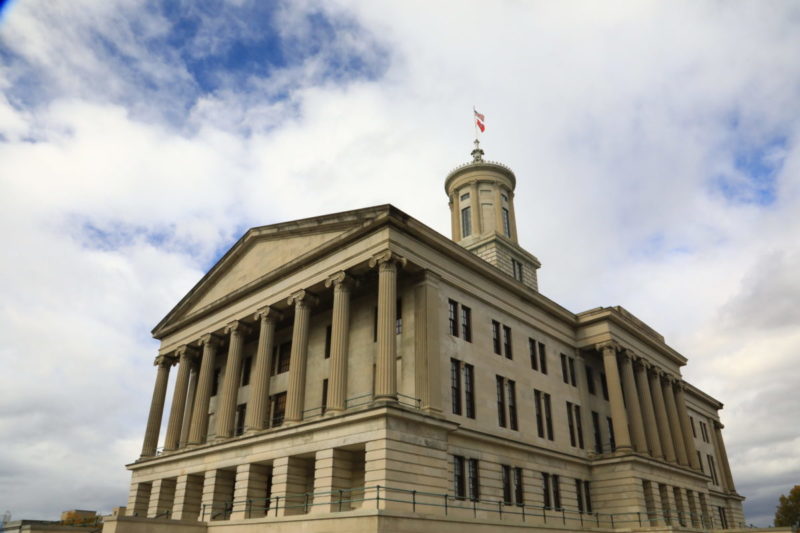What Do Abortion Funds and Forced Waiting Periods Have in Common?
Nothing. Someone tell the Tennessee Attorney General's office that.

Last Wednesday, the full Sixth Circuit Court of Appeals heard arguments in a case about an anti-abortion mandatory waiting period law out of Tennessee.
The case is called Bristol Regional Women’s Center v. Herbert Slatery, and there were a few moments in the hearing that made me go, “what the what?”
A little background: Waiting period laws are designed to delay and deter abortion, full stop. Sarah Campbell, the attorney for Tennessee, admitted it during the oral arguments. She said she hoped that, in some cases, the law would encourage people to forgo their abortions.
Waiting period laws aren’t necessarily unconstitutional. In Planned Parenthood v. Casey, the Supreme Court ruled in its 1992 decision that Pennsylvania’s 24-hour waiting period law wasn’t an undue burden and was therefore constitutional.
But here’s the thing: Tennessee’s waiting period is longer. It’s 48 hours. When pressed on this, Campbell said the court should allow any waiting period length so long as the option of an abortion remains.
Now, this is … extremely broad. Hypothetically speaking, it means a court could uphold a waiting period that lasts months because, technically, you can still get an abortion that late into pregnancy. If the court agrees with her, this could set a really devastating precedent.
The court pressed Campbell about the financial burden on patients with a waiting period, which can push patients into later abortions. Later abortions typically cost more.
The court asked Campbell outright: If a patient has to forgo paying for other essentials so they can afford their abortion, does that count as a financial burden?
Her answer? Nope—as long as a patient can pay for an abortion, it doesn’t matter. Yup, you heard that right.
She even went as far as to say abortion funds exist to solve this problem. This is a mind-boggling argument considering abortion funds exist because of abortion restrictions.
If the court agrees with Tennessee here and rules that the financial obstacle created by the 48-hour waiting period isn’t significant enough, it would create a gnarly precedent, not to mention being off-the-charts callous.
The court also brought up medication abortion, which is only available early in pregnancy and is a common form of abortion. If a mandatory waiting period forces a patient outside the window for medication abortion, does that mean the law is too burdensome?
Again, Campbell said no—as long as some type of abortion is available, the law should stand. And she said this even though, later abortions are costlier and medication abortions are often more accessible.
Campbell also said outright that the state hopes this law will deter some people from having an abortion altogether.
Thanks for saying the quiet part out loud, Sarah.
It’s a helpful reminder that no matter how many bogus arguments about health and safety anti-choicers cloak their policies in, at the end of the day, it’s about stopping abortion.
This post was adapted from a Twitter thread.

